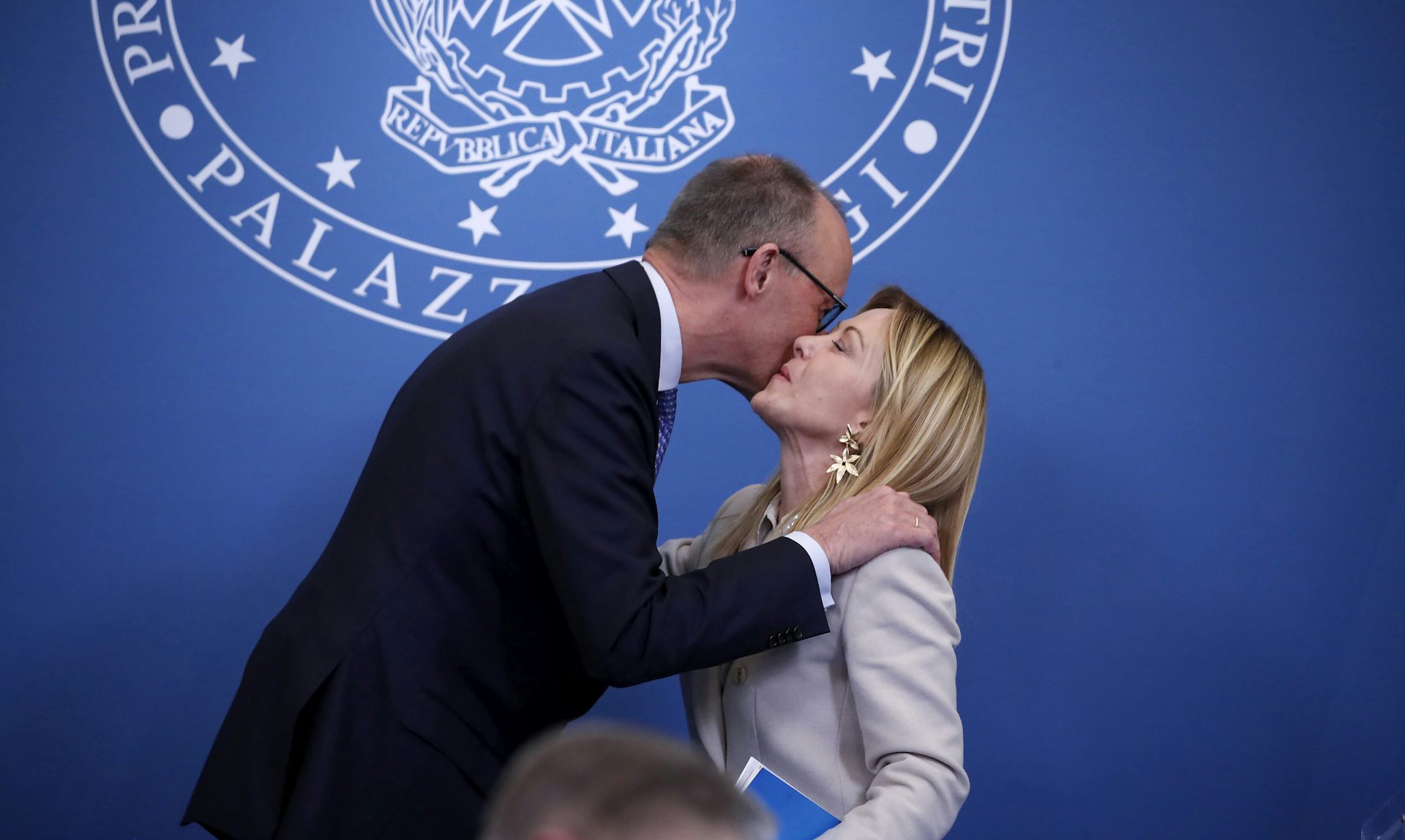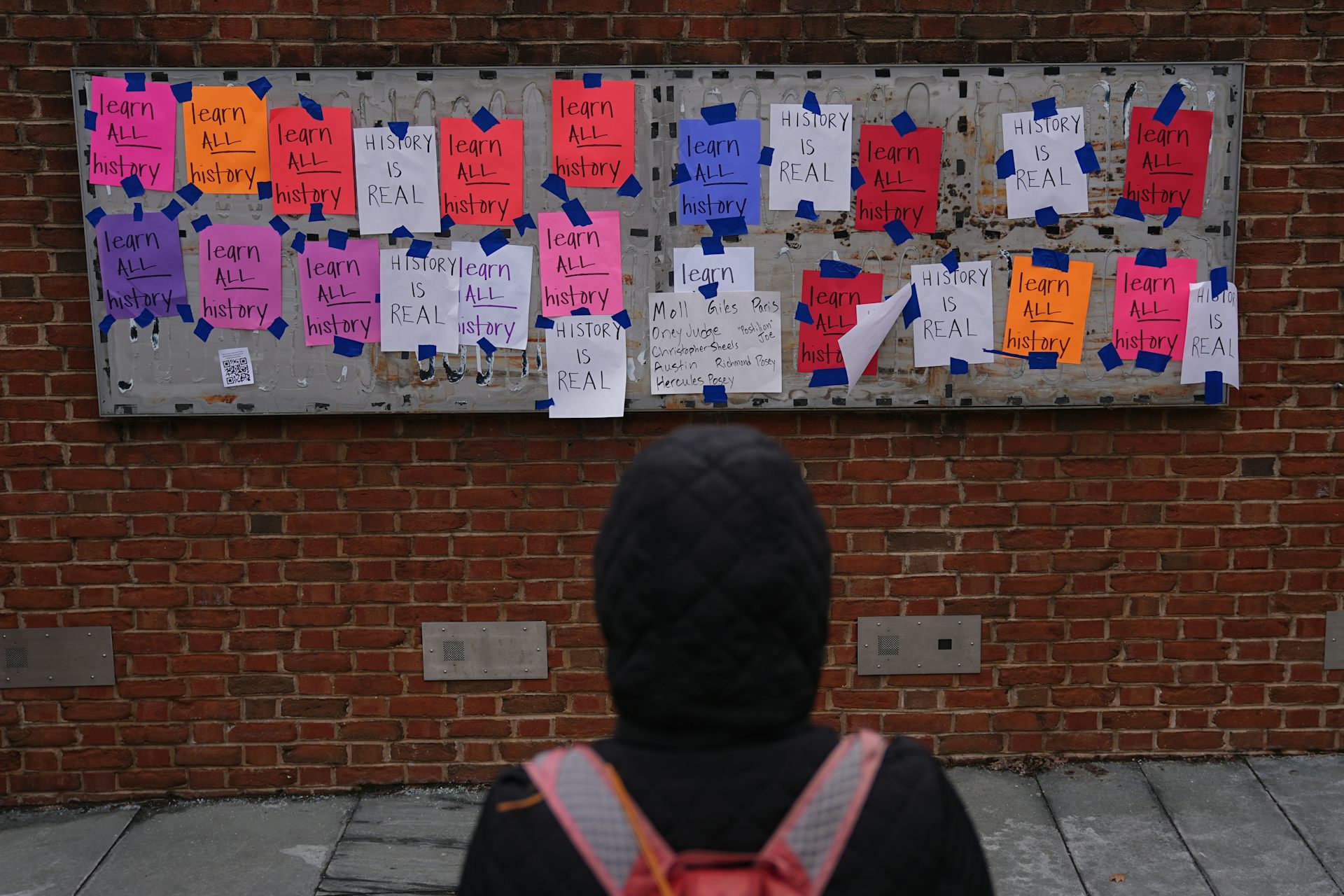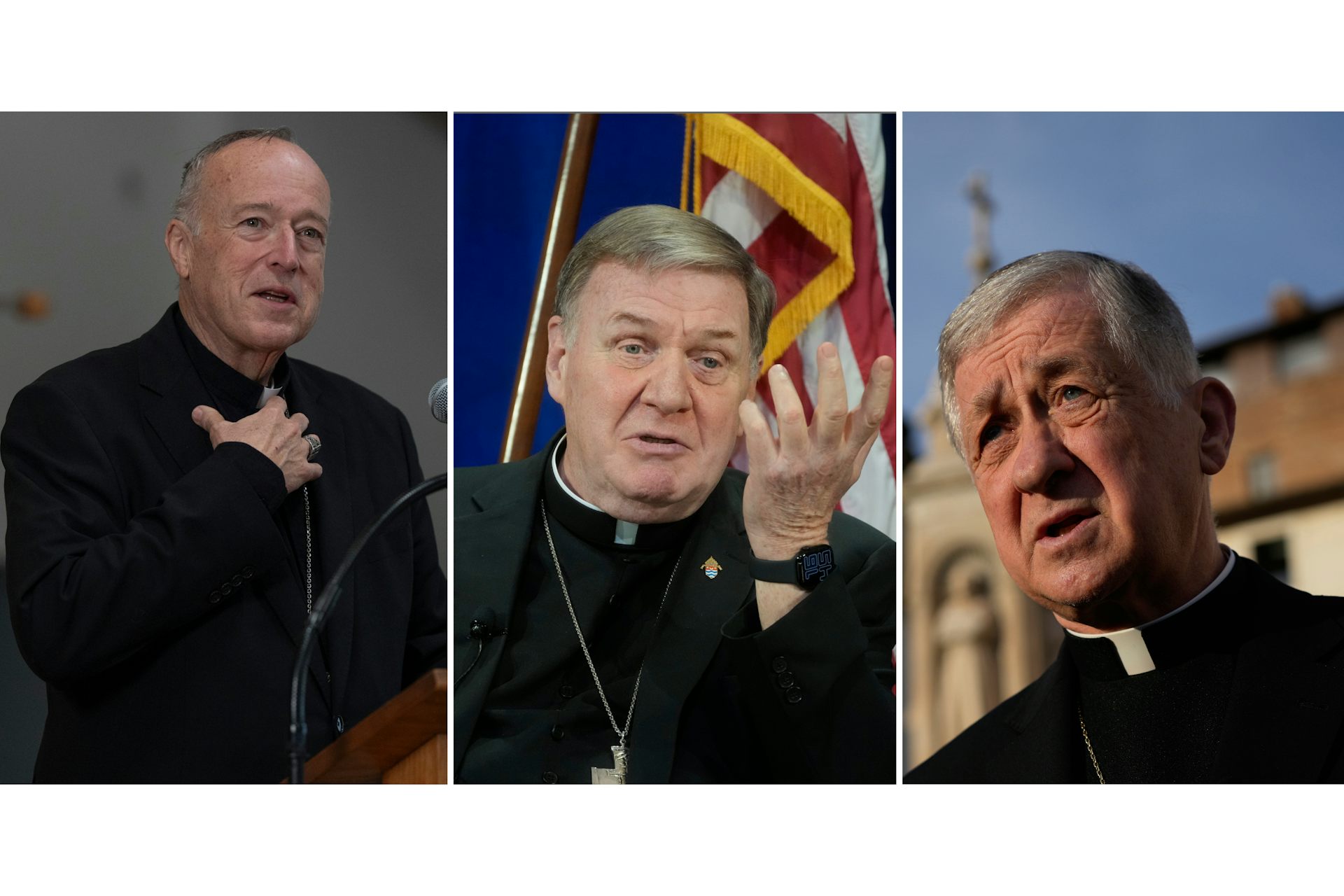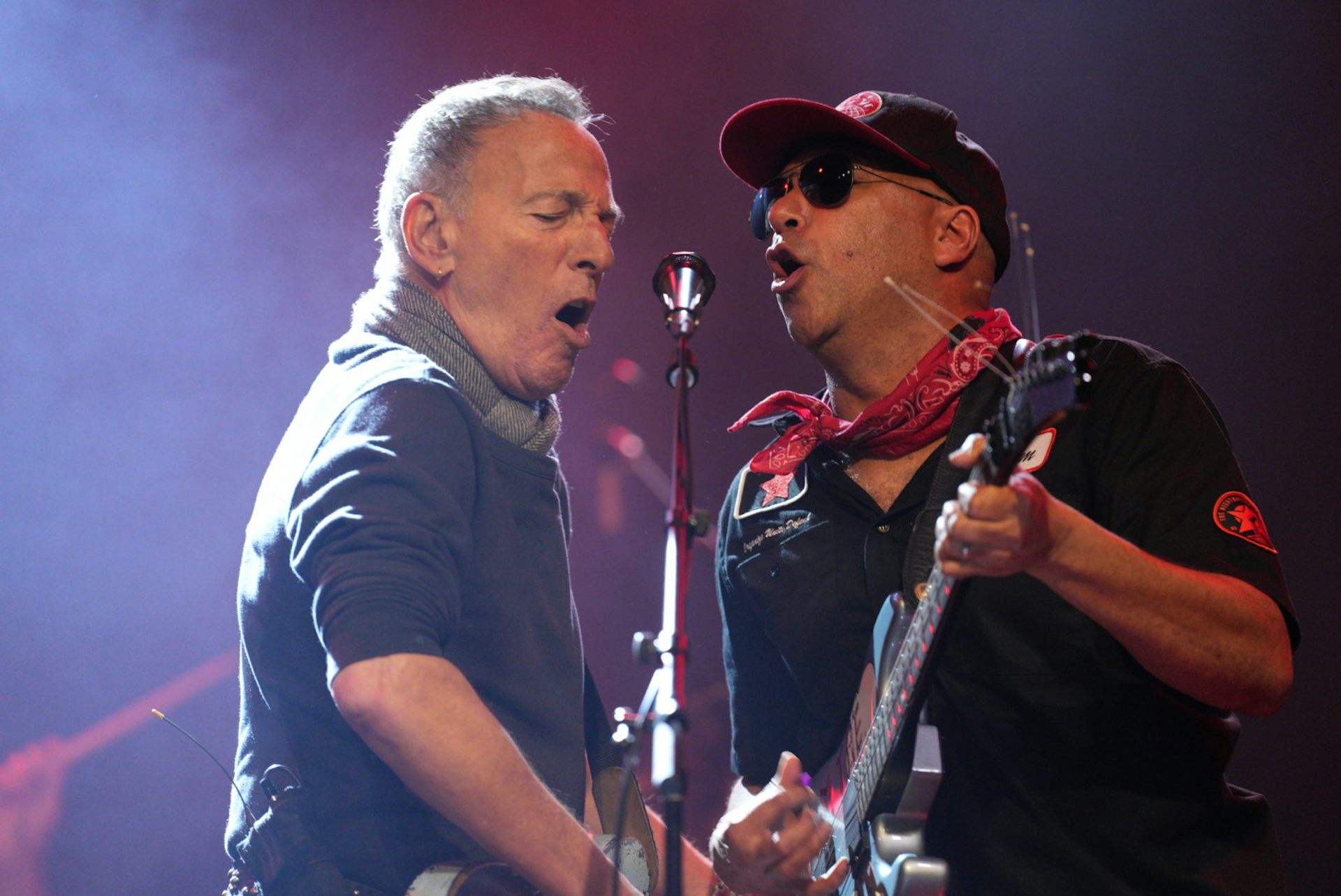Joe Biden appealed to 2 different audiences in his acceptance speech - 2 experts discuss which punch
Two scholars react to Biden's acceptance speech at the Democratic National Convention.
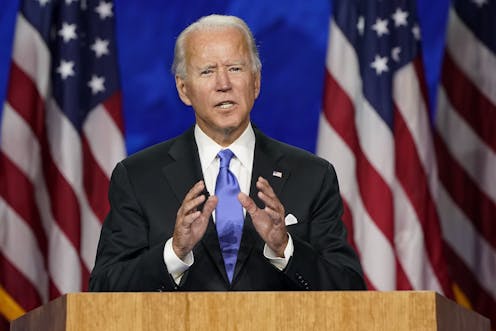
“Give people light,” Joe Biden said, beginning his acceptance speech at the conclusion of the Democratic party’s online convention on Aug. 20. Cynthia Young, a professor of African American studies at Penn State University, and political scientist Todd Shaw, of the University of South Carolina, offer their analysis of the address.
1. What did you think of the speech?
Todd Shaw: It was a very good speech that Biden delivered effectively.
The speech could have been awkward. Biden is a veteran politician known for his gaffes who spoke to a virtually empty auditorium. There was no raucous applause punctuating his sentiments. But I found his speech crisp, evocative and full of passion. It was his version of a fireside chat. And there was no mistaking that the two presidents Biden referenced in his remarks – Franklin Roosevelt and Barack Obama – are the Democratic models he wants to use in assembling a Biden-Harris electoral coalition.
As an obvious nod to Black women who are the most loyal constituency of the Democratic party, Biden used a quote from “a giant of the civil rights movement,” Ella Baker, to frame the core theme of his speech – “Give the people light, and they will find a way.”
Throughout the speech, Biden drew “light versus dark” contrasts with Trump. Biden painted himself as presidential and Trump as not. Biden said he would be an “American president” who leads and protects all of this diverse nation but especially the “middle class” and “working class.” Trump, if reelected, will only defend his base, the 1% elites, and sow further division and ugly animus, Biden said. Biden promised to tackle COVID-19, systemic racism, the economic crisis, and the environmental crises. Biden paraphrased Michelle Obama, saying Trump will only make things worse.
2. Democrats wanted a candidate who could unseat Trump. Did Joe Biden seem like that candidate?
Cynthia Young: To my surprise, he did. Biden can be oddly and sometimes inappropriately gruff. He is a former stutterer who sometimes stumbles over his words. He’s in his late 70s so he often speaks in aphorisms straight out of Mayberry USA. Tonight, he left much of that baggage behind, giving a masterful performance that was strong, resolute and even hopeful. In a historical moment defined, in his words, by a global pandemic, economic collapse, climate change and racial unrest, Biden had to acknowledge and empathize with the public’s suffering and convey a sense of hope and possibility. In short, he had to present a contrast to the current president.
As Prof. Shaw noted, Biden opened with the words of Ella Baker and portrayed himself as an “ally to the light” and this election as a fight for the “heart and soul of this nation.” Like him, the argument was an old-fashioned and familiar, but Biden’s delivery and his personal biography – his wife and baby daughter were killed in 1972 and his son Beau died of a brain tumor in 2015 – sold it. He spoke movingly of his grief and despair. Just as he had recovered from tragic loss, a Biden presidency would bring the U.S. out of “this season of darkness.” Biden would redeem others because he, himself, had been redeemed.
This hopeful message stood in stark contrast to his tough, no-nonsense, frontal attack on the president. As Trump was rage tweeting during his acceptance speech, Biden accused Trump of thinking the presidency was “all about him.” He attacked the president’s handling of the pandemic and a crumbling economy and described Trump as “cozying up to dictators.” The Biden campaign is betting on optimism over pessimism, square-jawed patriotism over narrow-eyed self-interest.
3. Biden was attempting to appeal to a broad range of voters. What kinds of voters do you think he likely reached the most?
Young: Throughout these last 4 nights, the convention has engineered a delicate balancing act, appealing to independent and disaffected Republicans on the first night and on subsequent nights, to the party’s traditional base: Black and brown women, immigrants and union workers.
Biden’s speech seemed designed to appeal to two primary audiences – older, Black women-identified voters, and white, working class voters. For the first audience, he name-dropped Ella Baker, Barack Obama and George Floyd, reminding viewers that his vice presidential pick Sen. Kamala Harris’ story is “the American story.” Together he and Harris would broker a racial truce, heal our collective “racial wounds.” It was not a story I found particularly convincing, given Biden’s part in undermining Anita Hill, during the Clarence Thomas confirmation hearings, but there is a swath of liberal voters who will want to believe it.
More likely to land is Biden’s appeal to the white, working class, the men and women who like his Irish Catholic father derive their “dignity from a paycheck.” Promising to secure Social Security and Medicare, Biden vowed to put workers before the wealthy, to fight hard for everyday people so that a person is only limited by their “dreams and god-given abilities.” To me, Biden’s pitch seemed to depend upon a faith that white workers who have bought into Trump’s racist policies could be won over to the Democrats by arguments about economy security.*
Hillary Clinton made the same wager and lost. It’s a different moment now, with nearly 6 million people in the U.S. contracting COVID-19 and over 1 million people filing for unemployment benefits last week. Perhaps the punch that landed most squarely tonight was this one: “We will never get our economy back on track. We will never get our kids safely back in schools. We’ll never have our lives back until we deal with this virus.” This November’s election will be a moratorium on whether the return to normalcy that Biden promises by getting the coronavirus under control outweighs the privileges of whiteness that Trump continues to defend.
4. Was there something you were hoping to hear from Biden that he didn’t address?
Todd Shaw: Biden nicely articulated his version of a progressive policy with regards to public health, the economy, and the environment. But young Black voters and other young progressives may criticize Biden for not referencing any specifics as to how he will tackle “systemic racism” beyond his citing the history he made by picking Sen. Kamala Harris to be his running mate. For instance, Biden made several references to the aspirations of young people, especially the millions who led or joined the spring 2020 Black Lives Matter uprising sparked by the police killing of George Floyd. Biden even recalled the touching words George Floyd’s little girl shared with him at Floyd’s memorial, “My Daddy changed the world.”
However, Biden did not recite the mantra of “Black Lives Matter.” He did not use the term “police” or “policing reforms” or “police brutality.” I am certain this will only add fuel to the concerns some younger voters have with Biden’s record and agenda. Some have already challenged the prosecutorial background of his running mate, Harris. Beyond this speech, the Biden-Harris campaign will have to consider whether the big electoral tent they want to construct will mobilize young Black and other voters, thus modeling the Obama-Biden coalition.
[Deep knowledge, daily. Sign up for The Conversation’s newsletter.]
The authors do not work for, consult, own shares in or receive funding from any company or organization that would benefit from this article, and have disclosed no relevant affiliations beyond their academic appointment.
Read These Next
The rise of ‘Merzoni’: How an alliance between Germany’s and Italy’s leaders is reshaping Europe
The center of gravity in Europe is increasingly aligning along a Rome-Berlin axis.
Martha Washington’s enslaved maid Ona Judge made a daring escape to freedom – but the National Park
Ona Judge was one of 9 people George Washington owned when he lived in the President’s House in Philadelphia.
Why is US health care still the most expensive in the world after decades of cost-cutting initiative
To lower health care costs, the Trump administration will have to wrangle a complex system fraught with…


